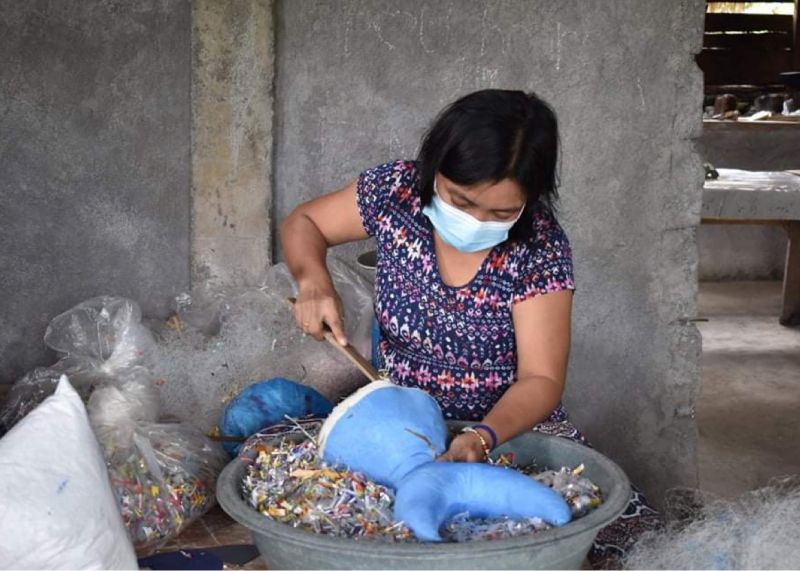Food and beverage manufacturer Nestlé Philippines has entered into an agreement with World Wide Fund for Nature – Philippines (WWF-PH) to tackle plastic waste in Donsol, Sorsogon, where whale shark watching is an ecotourism industry, and its coastal location includes many pathways for waste to end up in the sea.
Under the agreement and in line with its urgent priority to tackle plastic waste towards a waste-free future, Nestlé Philippines will support the Plastic Smart Cities project of WWF-PH, an initiative that works with Philippine cities and municipalities to push circular solutions to stop plastic waste leakage in nature. WWF is currently working in five project sites where it generates and pilots solutions to increase waste reduction, segregation, collection, and recycling.
Specifically, Nestlé Philippines will strengthen KALIPI operations and the pilot implementation of NAKAMOTO in six barangays in Donsol.
KALIPI or Kalipunan ng Liping Pilipina was launched in September of 2013 to empower Filipino women through community activities and the development of livelihood practices. Last October, KALIPI Donsol launched a line of souvenir products made from recycled plastics together with WWF-PH.

The province of Sorsogon shares a border with the Ticao-Burias Pass Protected Seascape (TBPPS). The TBPPS, a critical habitat, is home to the endangered whale shark. WWF-Philippines has been working with the municipal local government unit (LGU) of Donsol on the conservation of whale sharks since 1998.
Human activity surrounding the TBPPS presents a threat to the integrity of the protected area. Plastic pollution is becoming a threat, ending up in the habitat of marine life. KALIPI Donsol is addressing plastic pollution with its product line. In order to combat the threat of plastic pollution while creating new livelihood opportunities, the women’s rights organization has rolled out various handmade products. Each product is made of upcycled plastic, some of which are retrieved from the beach with the rest sourced from the local government waste collection service.
Meanwhile, NAKAMOTO is a pilot solution to collect wastes through motorcycles in barangays that are not serviced by the municipal waste collection system. WWF, together with partner barangays and the Donsol LGU, will launch this solution whereby waste segregation will be propagated in pilot barangays, with collection by means of motorcycles. Collected segregated wastes will be brought to the municipal composting area for biodegradables, partner junk shops for recyclables, and KALIPI for residual wastes.

“This partnership with WWF – Philippines gives us the opportunity to work with KALIPI and help pilot NAKAMOTO to advance waste collection, segregation, and recycling in Donsol. We strongly believe collaboration is indispensable in preventing plastic waste from ending up in landfills, the oceans, or as litter,” said Nestlé Philippines Chairman and CEO Kais Marzouki, “In this case, we welcome the chance to participate in piloting and expanding solutions that will help keep our oceans clean.”
“We are thankful for this support from Nestlé Philippines in helping us expand our solution which aims to lessen plastic wastes by 20% in Donsol, while providing livelihood support to women. With this, we will be able to help create more upcycled products from plastics and reach a wider market. We, as a women’s group in Donsol, are excited to increase our support for our LGU in implementing our 10-year solid waste management plan,” said KALIPI President Wilma D. Arevalo.
Initiatives of Nestlé Philippines to tackle plastic waste include achieving plastic neutrality on a monthly basis starting last August, which means it retrieves plastic waste equivalent to what it generates from its packaging in the market, averaging over 2,000 metric tons a month. It is also actively supporting a mandated Extended Producer Responsibility scheme for plastic waste in the country in which producers will assume responsibility for plastic packaging beyond the consumption of products. In addition, the company is currently pursuing the reduction of plastics and redesigning its packaging to make these more recyclable.
